Science & Space: 8 of 10
-
141.
 +35
+35Paleontologist discovers rare soft tissue in fossil of crab
Most animals and plants never fossilize. For those that do, it's usually only hard parts such as bones and shells that preserve. However, in some exceptional cases, soft tissues such as muscles and gills survive the fossilization process and can present a wealth of information about the biology and ecology of ancient organisms.
-
142.
 +45
+45Meta's new AI assistant trained on public Facebook and Instagram posts
Meta Platforms used public Facebook and Instagram posts to train parts of its new Meta AI virtual assistant, but excluded private posts shared only with family and friends in an effort to respect consumers' privacy, the company's top policy executive told Reuters in an interview.
-
143.
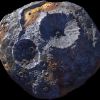 +41
+41NASA's robotic prospectors are helping scientists understand what asteroids are made of – setting the stage for miners to follow someday
Upcoming NASA missions will help scientists understand the composition of asteroids – which could inform companies one day hoping to commercially mine asteroids.
-
144.
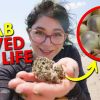 +41
+41This Crab Saved My Life
-
145.
 +31
+31How to Build an Origami Computer
Two mathematicians have shown that origami can, in principle, be used to perform any possible computation.
-
146.
 +29
+29The Hidden Butterfly Trade
How the lucrative market could spark conservation.
-
147.
 +39
+39Where Do Millions of Snakes Disappear to?
-
148.
 +26
+26Man notices ancient human jawbone embedded in parents' tile floor
A Reddit user got the surprise of a lifetime when they noticed a human-like jawbone embedded in the new travertine flooring at their parents' house.
-
149.
 +32
+32The new drugs that may bring an end to constant itching
While for most people, an itch is an annoying, temporary nuisance, one in five of us will experience chronic itch lasting weeks or months. New treatments finally offer hope.
-
150.
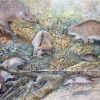 +23
+23Australian scientists identify ‘Age of Monotremes’
Evidence of the oldest known platypus and a new species ‘echidnapus’.
-
151.
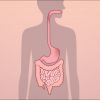 +46
+46Zebra fishes show the way to drugs against Inflammatory bowel disease, IBD
-
152.
 +28
+28Dozens of Top Scientists Sign Effort to Prevent A.I. Bioweapons
An agreement by more than 90 said, however, that artificial intelligence’s benefit to the field of biology would exceed any potential harm.
-
153.
 +36
+36The 8 Things Causing Illness Most Doctors Can't Treat | Dr. Robert Lustig
-
154.
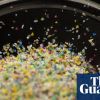 +24
+24Microplastics found in every human testicle in study
Scientists say discovery may be linked to decades-long decline in sperm counts in men around the world
-
155.
 +44
+44Female Cockroaches Hate Romance (And It’s Our Fault)
-
156.
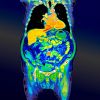 +41
+41A Mom Ate Chicken Burrito From A Suspicious Restaurant. This Is What Happened To Her Gut.
-
157.
 +50
+50Asian American workers could be the most heavily affected by AI
Asian Americans and women in the workforce are the most concentrated in fields where AI could assist or replace their job tasks, according to new research.
-
158.
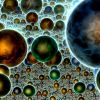 +38
+38Many physicists assume we must live in a multiverse – but their basic maths may be wrong
The universe appears to be fine-tuned for life to evolve.
-
159.
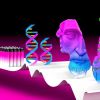 +27
+27Inkjets Are for More Than Just Printing
Inkjet technology has found a host of applications beyond putting dots on paper. It can now be used to make DNA microarrays for genomics, create electrical traces for printed circuit boards, and build 3D-printed structures.
-
160.
 +44
+44A gigantic Navy drone is ready to surveil the ocean from above
The Triton aircraft has a wingspan wider than a Boeing 737's. The program just reached an important milestone.




















